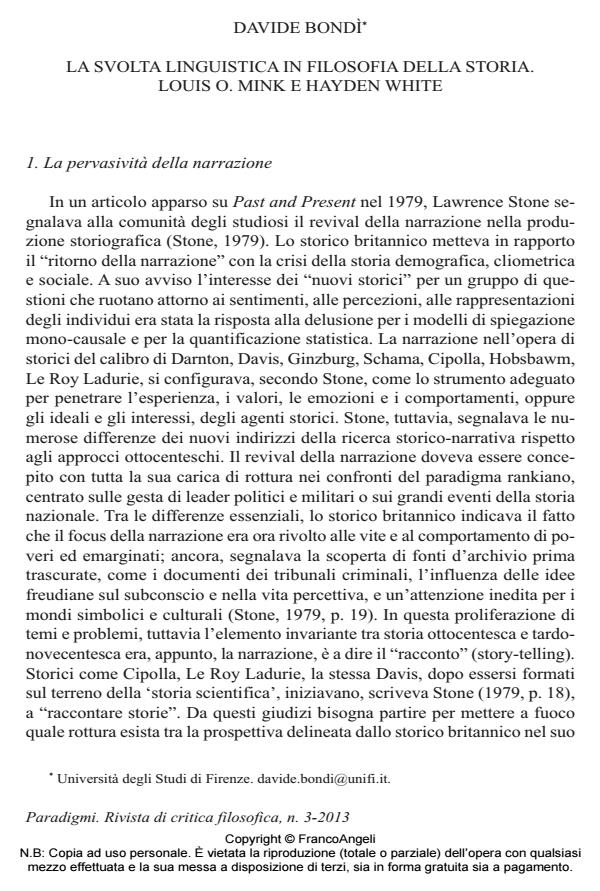La svolta linguistica in filosofia della storia. Louis O. Mink e Hayden White
Titolo Rivista PARADIGMI
Autori/Curatori Davide Bondì
Anno di pubblicazione 2014 Fascicolo 2013/3
Lingua Italiano Numero pagine 27 P. 131-157 Dimensione file 136 KB
DOI 10.3280/PARA2013-003009
Il DOI è il codice a barre della proprietà intellettuale: per saperne di più
clicca qui
Qui sotto puoi vedere in anteprima la prima pagina di questo articolo.
Se questo articolo ti interessa, lo puoi acquistare (e scaricare in formato pdf) seguendo le facili indicazioni per acquistare il download credit. Acquista Download Credits per scaricare questo Articolo in formato PDF

FrancoAngeli è membro della Publishers International Linking Association, Inc (PILA), associazione indipendente e non profit per facilitare (attraverso i servizi tecnologici implementati da CrossRef.org) l’accesso degli studiosi ai contenuti digitali nelle pubblicazioni professionali e scientifiche.
Il contributo di Louis Mink e Hayden White al dibattito teorico sulla storia della seconda metà del Novecento è difficilmente sopravvalutabile. Il "narrativismo" non coincide con l’analisi linguistica dei testi storici e con l’applicazione di metodi o di una serie di procedure, ma esprime una teoria della natura linguistica del mondo storico, secondo un programma di de-naturalizzazione del concetto di storia. L’approccio critico dei due studiosi, le cui proposte non sempre convergono, consiste nel verificare i limiti della rappresentazione storica e sondare le nuove condizioni di oggettività e realismo del giudizio storico
Parole chiave:Mink, Narrazione, Rappresentazione, Realismo, Sublime, White.
Davide Bondì, La svolta linguistica in filosofia della storia. Louis O. Mink e Hayden White in "PARADIGMI" 3/2013, pp 131-157, DOI: 10.3280/PARA2013-003009